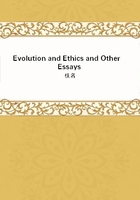
第43章
Now, surely, it is beyond a doubt that these wages, whether at or above the irreducible minimum, are paid out of the capital disposable after the wants of the owner of the flock or of the crop of grain are satisfied; and, from what has been said already, it follows that there is a limit to the number of men, whether hired, or brought in any other way, who can be maintained by the sheep owner or landowner out of his own resources. Since no amount of labour can produce an ounce of foodstuff beyond the maximum producible by a limited number of plants, under the most favourable circumstances in regard to those conditions which are not affected by labour, it follows that, if the number of men to be fed increases indefinitely, a time must come when some will have to starve. That is the essence of the so-called Malthusian doctrine; and it is a truth which, to my mind, is as plain as the general proposition that a quantity which constantly increases will, some time or other, exceed any greater quantity the amount of which is fixed.
The foregoing considerations leave no doubt about the fundamental condition of the existence of any polity, or organised society of men, either in a purely pastoral or purely agricultural state, or in any mixture of both states. It must possess a store of vital capital to start with, and the means of repairing the consumption of that capital which takes place as a consequence of the work of the members of the society. And, if the polity occupies a completely isolated area of the earth's surface, the numerical strength of that polity can never exceed the quotient of the maximum quantity of food-stuffs producible by the green plants on that area, in each year, divided by the quantity necessary for the maintenance of each person during the year.
But, there is a third mode of existence possible to a polity; it may, conceivably, be neither purely pastoral nor purely agricultural, but purely manufacturing. Let us suppose three islands, like Gran Canaria, Teneriffe and Lanzerote, in the Canaries, to be quite cut off from the rest of the world. Let Gran Canaria be inhabited by grain-raisers, Teneriffe by cattle-breeders; while the population of Lanzerote (which we may suppose to be utterly barren) consists of carpenters, woollen manufacturers, and shoemakers. Then the facts of daily experience teach us that the people of Lanzerote could never have existed unless they came to the island provided with a stock of food-stuffs; and that they could not continue to exist, unless that stock, as it was consumed, was made up by contributions from the vital capital of either Gran Canaria, or Teneriffe, or both. Moreover, the carpenters of Lanzerote could do nothing, unless they were provided with wood from the other islands; nor could the wool spinners and weavers or the shoemakers work without wool and skins from the same sources. The wood and the wool and the skins are, in fact, the capital without which their work as manufacturers in their respective trades is impossible--so that the vital and other capital supplied by Gran Canaria and Teneriffe is most indubitably the necessary antecedent of the industrial labour of Lanzerote. It is perfectly true that by the time the wood, the wool, and the skins reached Lanzerote a good deal of labour in cutting, shearing, skinning, transport, and so on, would have been spent upon them. But this does not alter the fact that the only "production" which is essential to the existence of the population of Teneriffe and Gran Canaria is that effected by the green plants in both islands; and that all the labour spent upon the raw produce useful in manufacture, directly or indirectly yielded by them--by the inhabitants of these islands and by those of Lanzerote into the bargain--will not provide one solitary Lanzerotian with a dinner, unless the Teneriffians and Canariotes happen to want his goods and to be willing to give some of their vital capital in exchange for them.
Under the circumstances defined, if Teneriffe and Gran Canaria disappeared, or if their inhabitants ceased to care for carpentry, clothing, or shoes, the people of Lanzerote must starve. But if they wish to buy, then the Lanzerotians, by "cultivating" the buyers, indirectly favour the cultivation of the produce of those buyers.
Thus, if the question is asked whether the labour employed in manufacture in Lanzerote is "productive" or "unproductive" there can be only one reply. If anybody will exchange vital capital, or that which can be exchanged for vital capital, for Lanzerote goods, it is productive; if not, it is unproductive.
In the case of the manufacturer, the dependence of labour upon capital is still more intimate than in that of the herdsman or agriculturist.
When the latter are once started they can go on, without troubling themselves about the existence of any other people. But the manufacturer depends on pre-existing capital, not only at the beginning, but at the end of his operations. However great the expenditure of his labour and of his skill, the result, for the purpose of maintaining his existence, is just the same as if he had done nothing, unless there is a customer able and willing to exchange food-stuffs for that which his labour and skill have achieved.